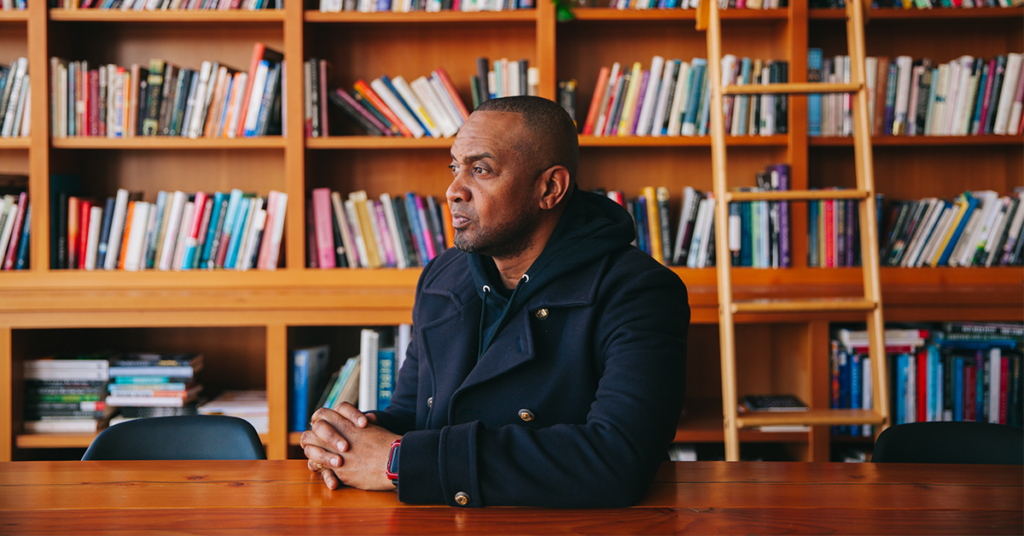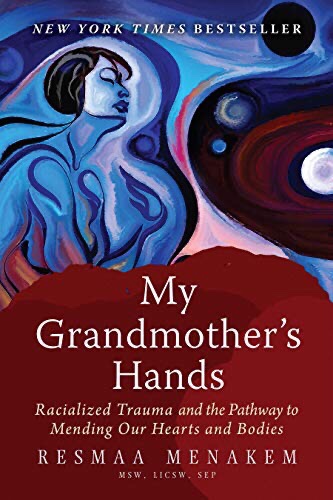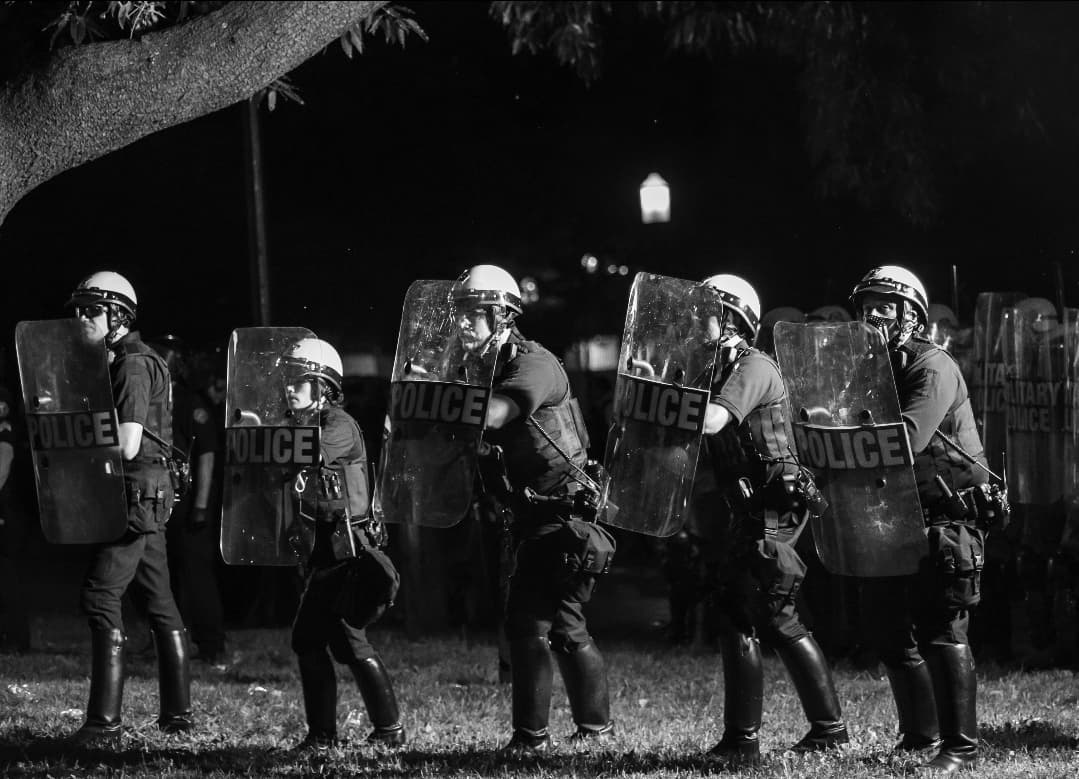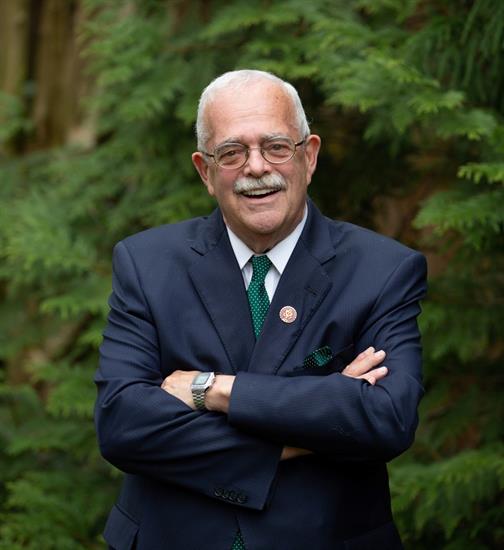Healing the Body: A Way Towards Justice. . . And Better Policing?
My Grandmother’s Hands: Racialized Trauma and the Pathway to Mending Our Hearts and Bodies
By Resmaa Menakem
Resmaa Menakem is a self-described healer, author, and trauma specialist. He has MSW, LICSW, SEP and has worked in Minneapolis, Minnesota as a private practice therapist. His work has placed him on shows like Dr. Phil and the Oprah Winfrey Show. On his website he says about himself “I have been to that suffering edge. That is where I found what I was made of. That I am more. That I must build up others and myself. Small consistent challenges to comfort is how I grew – and how you can grow too.”

American society may have also reached its own suffering edge as well. Since the killing of George Floyd in late May, this country’s raw history of racialized violence has come to the surface, unable to be hidden again. People have sought for solutions abound. Many (white) people have taken comfort in book lists. Source such as Vogue, the Atlantic, New York Mag have put out lists for their readers. Providing (primarily white) people with palatable “action,” reading a book. One that tells them what the problem is, what their role in the problem is, and what they should do to change their individual role in it.
Except, systemic racism and all of the byproducts of it: police brutality, medical mistreatment, employment discrimination, to name a few, cannot be solved by individual action but only through collective change. In our individualistic society a call to collaborate is often heard as well as a tree falling in an empty forest.
For that reason, Menakem’s 2017 book has not lost any of its relevance since its release. “My Grandmother’s Hands” provides answers to the questions and concerns that have been filling everyone’s mind over the past few months. It’s title, a reference to hands damaged from picking cotton as a sharecropper. The subtitle ‘Racialized Trauma and the Pathway to Mending Our Hearts and Bodies’ summarizes the purpose of the book in one sentence.

Right away Menakem provides both a caution and a directive to potential readers. His cautions are about readers preconceived ideas of white supremacy. Whereas his directive is for readers to watch their bodies. Meaning, pay attention to one’s feelings and sensations, this is a core concept in Menakem’s work.
Parallel to our own bodily experience, the book moves through one’s own body, DNA, and history, to our relational experiences with other bodies (people), and finally to our collective experience as a society. As we move through each area focus shifts between three types of bodies, which may overlap, the Black body, the white body, and the police body.
At times the prescriptions seem ill-fitting. One chapter recommends police do more self-care, that is all well and great for them, but is an unconvincing remedy to police killing Black people in the street. Although its not clear if that’s presented as a temporary way to relieve some of the somatic systems of policing or a long-term shift.
“There’s a way out of this mess, and it requires each of us to begin with our own body. You and your body are important parts of the solution.”
There is no hesitancy in this work to call a spade, a spade. Whether is the fragility of whiteness, or as he would say white body supremacy, that demands Black people cater to the feelings of white bodies. Or acknowledgement of the deeply rooted history of this trauma, going all the way back before the first enslaved Africans in this hemisphere to medieval Europeans.
Culminating in a message that is at its core a call to action. Particularly to white people, to create a culture for themselves that is not built upon the premise of white (body) supremacy. It’s framing provides no out for readers. There is only one way to move and it is forward. Otherwise it will mean the demise of all our cultures in this shared society.
“My Grandmother’s Hands: Racialized Trauma and the Pathway to Mending Our Hearts and Bodies” is available at most online retailers and many Black owned bookstores. A range of people from those working in the field of therapy to police to anyone seeking a solution to America’s problem of race, can benefit from this book.
“We will not end white-body supremacy – or any form of human evil – by trying to tear it to pieces. Instead, we can offer people better ways to belong and better things to belong to.”
Resmaa Menakem, My Grandmother’s Hands



